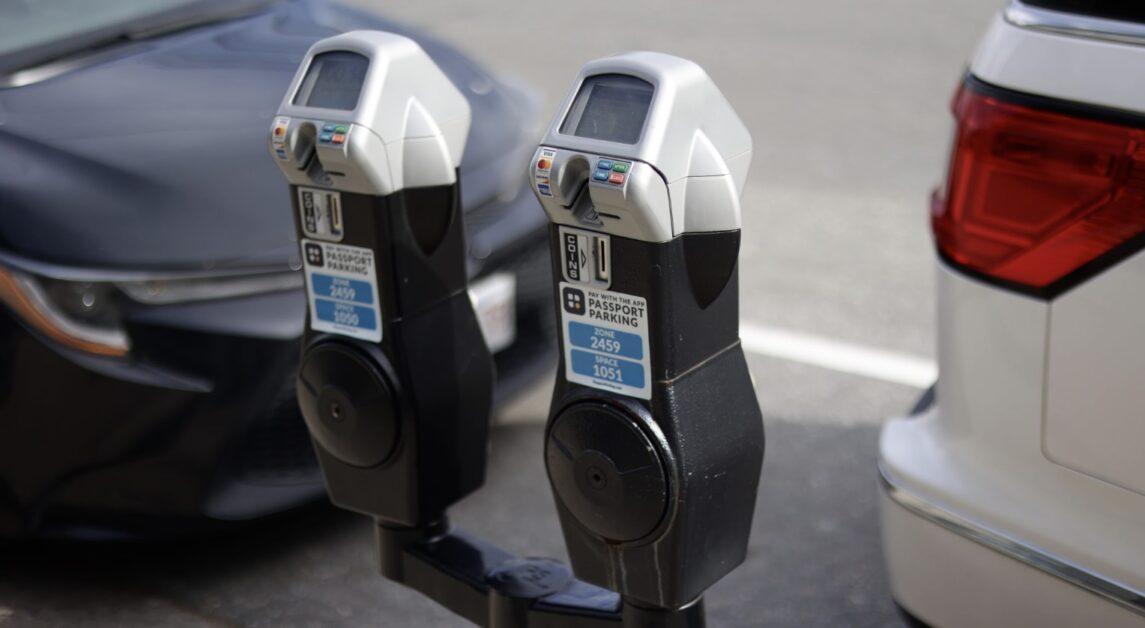
The parking ban prohibits on-street parking between 2 and 6 a.m. from Dec. 1 through March 31. (Genevieve Morrison / Heights Editor)
Residents packed the Newton Free Library’s Druker Auditorium on Tuesday to watch four panelists debate whether the city should repeal its 90-year-old winter overnight parking ban in a November ballot initiative.
“Safety, safety, safety is the number one priority in this city,” Newton resident Teresa Sauro said. “Keep the ban until there’s a plan.”
The parking ban, which prohibits on-street parking between 2 and 6 a.m. from Dec. 1 through March 31, has sparked controversy across the city.
In hosting this event, the League of Women Voters of Newton presented voices from both sides of the issue—those advocating for a “Yes” vote to eliminate the ban, and those urging a “No” vote to keep the ban—to help residents weigh their decisions before voting.
In favor of the repeal, Peter Klapes and Jeremy Freudberg argued that the parking ban has reduced Newtonians’ quality of life, especially those without driveways and those with disabilities that require a home health aide.
“I had a neighbor a couple years ago—really severe stroke—he didn’t have enough parking to accommodate his health overnight nurse,” Klapes said. “It’s a real impediment to quality of life here in Newton.”
The pair, both lifelong Newton citizens leading a campaign to repeal the parking ban, emphasized the success of the pilot during the pandemic, when the city suspended the parking ban.
In addition, Freudberg, who formerly served on the Newton Traffic Council and is now the President of Newton Highlands Neighborhood Area Council, called for new developments that guarantee sufficient parking.
“I worked on a lot of street-specific parking petitions,” Freudberg said. “The truth is that a four-month, four-hour overnight parking ban doesn’t cut it.”
On the contrary, opponents of the repeal, Sauros and Dan Cohen, stressed that removing the ban without a clear alternative plan would give rise to undesirable safety hazards in such a snow-heavy city.
“Newton does not tow cars after two or three snowfalls of a few inches, even when large piles of snow have accumulated on the streets,” said Sauros.
The pair argued that parked cars will only add to the list of obstacles that need to be addressed during severe winter weather, especially burdening vulnerable populations, such as children and the elderly.
“A lot of the elderly are climbing over those snow plows,” Sauros said. “Narrow streets can make it very difficult for emergency vehicles like ambulances and clients to get through in emergency situations. If streets are blocked by cars, how are ambulances or fire trucks supposed to reach them in time?”
Sauros also shared an anecdote to underscore her point, an incident where her own home suffered a three-alarm fire.
“That night was a frigid, cold night,” she said. “If cars had been parked on both sides of the street, the fire engines never would have made it through. It only takes one blocked road for tragedy to happen.”
Building on Sauros’ point, Cohen argued that the repeal is an immediate, all-or-nothing measure that could create a complicated aftermath and demand even more solutions from the city—solutions that would be difficult to implement before winter.
“It’s a blanket repeal for the entire city,” Cohen said. “It forces us to rewrite parking restrictions street by street just to maintain safety, and that takes time we don’t have.”
Cohen also warned that the timing of the vote could lead to unintended consequences around Boston College, where many students return to campus in late November.
“Think about the college students who go home for Thanksgiving right after the vote,” Cohen said. “They’ll return with their cars, and without overnight restrictions near campus, those neighborhoods could become off-campus parking lots.”
Responding to safety concerns raised by the “Vote No” panelists, Klapes proposed that the existing ban poses its own safety concerns.
“We’re concerned about safety as well,” Klapes said. “But we’re also concerned about forcing residents, especially older adults, to walk long distances from municipal lots to their homes during winter nights.”
The Vote No team maintained that Newton already has sufficient options for residents who need parking during snow emergencies.
“So you ask, ‘Where can people park during a snow emergency?’” Cohen said. “We have lots of municipal buildings, schools, and other facilities throughout the city. We don’t have to rely solely on municipal lots—you can ask for permission to park in those places.”